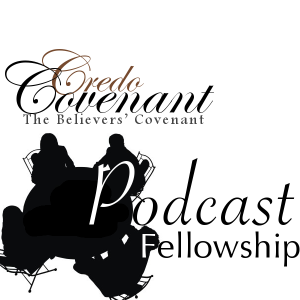In this episode, JD and Billy sit down with Pastor Jason Delgado, Mike King, and Jack DiMarco to discuss how they came to affirm Covenant Theology. Featuring music from Michael Padgett and Indelible Grace.
–
MP3 Download | stream:
–
Subscribe to future podcasts and leave us a review on iTunes: RSS | iTunes
–
The book we’re currently reading…
Covenant Theology: From Adam to Christ by Nehemiah Coxe and John Owen
We’d love your participation. Contact us with your comments and questions about the books contents:

Re: Covenant Theology and Preaching, I would recommend William Perkins’ “The Art of Prophesying”
http://www.wtsbooks.com/the-art-of-prophesying-and-the-calling-of-the-ministry-william-perkins-9780851516899
Pingback: May 2014 Week 1 Dunker Bunker “Star Wars Day” Edition [Weekly Audio Headlines] | The Confessing Baptist
Reblogged this on Feileadh Mor and commented:
How We (Baptists) Came to Covenant Theology
Maybe you should qualify your statements about Presbyterians. The Westminster standards do not teach that children of believers are in the Covenant of Grace. The Divines where very emphatic that it is the only elect who benefit from the redemption purchase by Christ (and thereby in the Covenant of Grace). Some Presbyterians have read into the word “elect” to mean the children of believer, but the standards do not teach this. If that is what the Divines meant, they had a perfect opportunity to say so in Q&A in WCF 10.3. I am a credo-covenant (of grace) Presbyterian. Not all of us are Mosaic Covenant Presbyterians like Horton.
Thank you, Nate. We are not above correction. Just let us know which specific statements we made so we can review them and retract them if necessary. If we incorrectly used the term paedobaptist when oikobaptist would’ve been more correct, that’s certainly our bad. On a side note, what is a “credo-covenant” Presbyterian? Are you saying you are a non-congregational, high-church credobaptist? If so, it would be interesting to see how you reconcile your understanding of the covenants (and covenant signs) with your ecclesiology. Thanks for commenting. We appreciate your participation.
Hi Nate,
I think the guys can be forgiven for not qualifying every statement they make. Saying that Presbyterians believe their children are covenant members is not outlandish. It is a standard statement. If you think they need to qualify their statement, then paedobaptists should qualify their own statements, such as Heidelberg 74
Of course the explanation for this is the inward/outward distinction. Children and all professors (even false) are outward members of the covenant of grace. But it is not as though all Presbyterians, particularly those writing on covenant theology, interpret WLC31 the way you do. The Directory of Public Worship, which was published along with the WCF in Scotland, states
What’s missing from WCF is any mention of the Covenant of Redemption. Many paedos believe only the elect are in the CoR, but the reprobate may be in the CoG.
http://www.upper-register.com/papers/aahodge_onecov.html
So it’s hardly these guys’ fault that paedobaptist covenant theology makes conflicting statements whenever it talks about the issue.
I’m curious, Nate, do you believe the Covenant of Grace is breakable? Do you believe that apostasy is covenant breaking? If so, how to do you reconcile that with your belief that only the elect are covenant members?